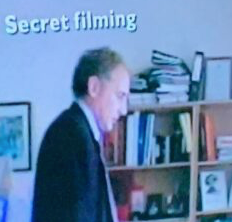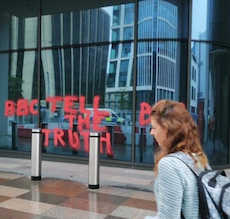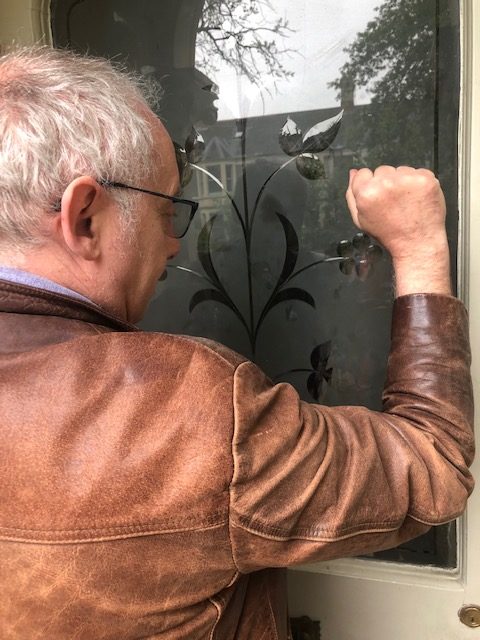- History man - 3rd March 2026
- British Broadcasting Complaint (BBC) - 3rd March 2026
- Rocket man - 2nd March 2026

After 23 years with The BBC, and a 41 year journalistic career (when he was trained to use clear and simple language, avoiding jargon), our Editor, Welshman Phil Parry notes the importance of the kind of undercover reporting he has pursued, as the technique has exposed the terrible conditions experienced today by migrant workers.
They have their uses.
Unfortunately secret recordings and undercover reporting methods have to be employed on occasions, because people don’t always tell the truth so these techniques must be used to find out the facts.
 Over the years I have worn a hidden camera in my tie, kept a whirring tape recorder in my bag, and wired up the phone for interviews.
Over the years I have worn a hidden camera in my tie, kept a whirring tape recorder in my bag, and wired up the phone for interviews.
For the tie camera one, the device became very hot and I kept having to move it, but luckily our target didn’t suspect a thing, and he admitted he should have appeared at a police identity parade a week after an awful murder.
When I presented the BBC Cymru Wales Current Affairs programme Week In, Week Out (WIWO) we sent a very courageous researcher to work in the kitchen of a pub where we knew an unsavoury system was in place.
 She had a tiny camera hidden in the button of her outfit.
She had a tiny camera hidden in the button of her outfit.
She recorded the terrible practice of changing food labels to make out they were in date and could be served to people, as she recorded the notorious comment from one person in the kitchen: “I wouldn’t give this stuff to my dog!”.
There were sackings after that programme.
All of this has been put centre stage for me, with more details emerging of the appalling conditions for migrant workers.
To bring them to light, a journalist took a job on a farm in Germany posing as one of them.


Saša Uhlová, a staff writer at the Czech online daily Deník Alarm, went undercover to report what was going on.
Ms Uhlová has written: “The contract I sign on about day three probably corresponds to the German labour code.
“But I receive two work report sheets. On one I write down the actual hours worked and on the other, the official sheet, I sign those that are recorded: a maximum of 10 hours of work a day, six days a week…you work a certain number of hours, but a lower number is recorded. As a result, you meet the legal requirements for the number of hours and the minimum hourly wage.

“I’d already heard about double reporting, but here they present it to me as a matter of course. No one explains what is going on. According to the official record, I might work until 4pm today, and there was no work at all on Sunday”.
She continued: “We chop and peel onions, peppers, tomatoes, root vegetables, pumpkins, white cabbage and cucumbers.
“My wrists start to hurt and the piles of cabbage seem to never end…I’m given the task of halving peeled yellow onions into plastic bags. Then I have to peel and cut red onions into 3cm by 3cm pieces”.

Women leave their children at home to work on the farm living in a hostel, and they are forced into a situation where there are no fixed hours of employment.
Ms Uhlová is told: “‘there are no working hours, there is no Monday to Friday. Here they just tell you to go to work, and you never know when it’s going to end’”.

She was not alone either, there were scores of migrant workers at this farm, and scores more at farms all over western Europe.
The difference is that she was a journalist who went undercover and reported what it is like for all the others…
The memories of Phil’s astounding, decades long award-winning career in journalism (when secret recordings often had to be made) as he was gripped by the rare neurological disabling condition Hereditary Spastic Paraplegia (HSP), have been released in a major book ‘A Good Story’. Order it now.
 Tomorrow – should Wales’ only national English-language radio station be marking its birthday after the disgrace of the past?
Tomorrow – should Wales’ only national English-language radio station be marking its birthday after the disgrace of the past?











